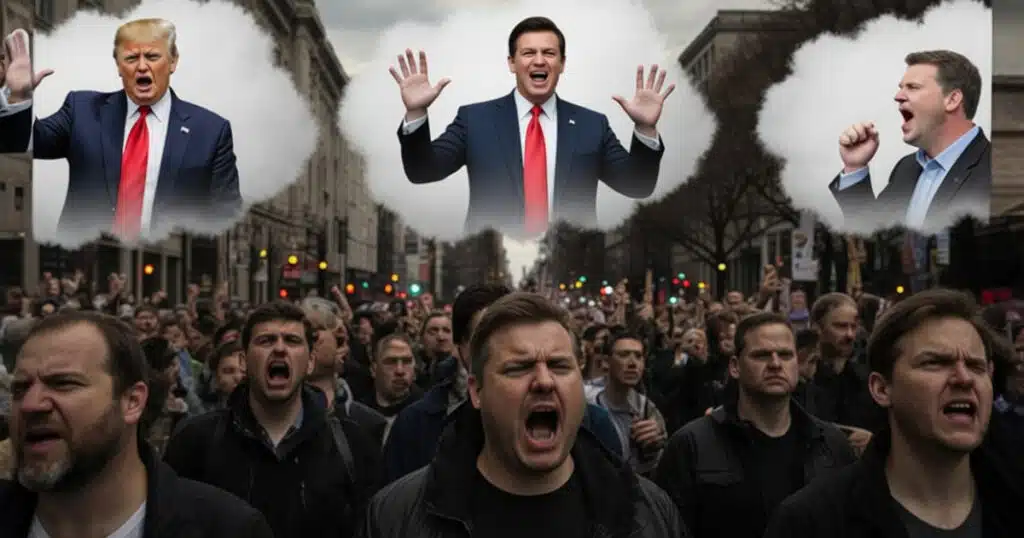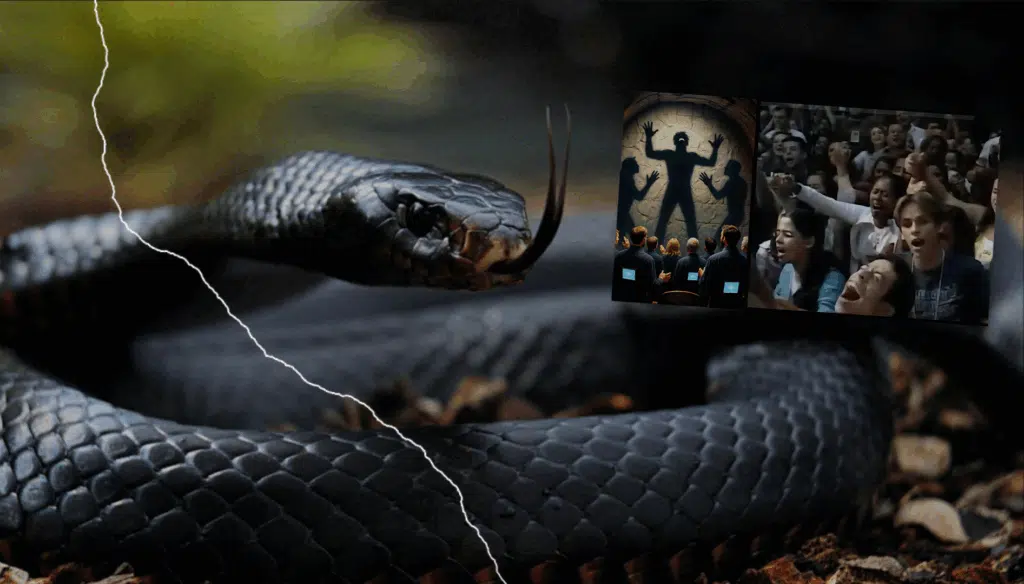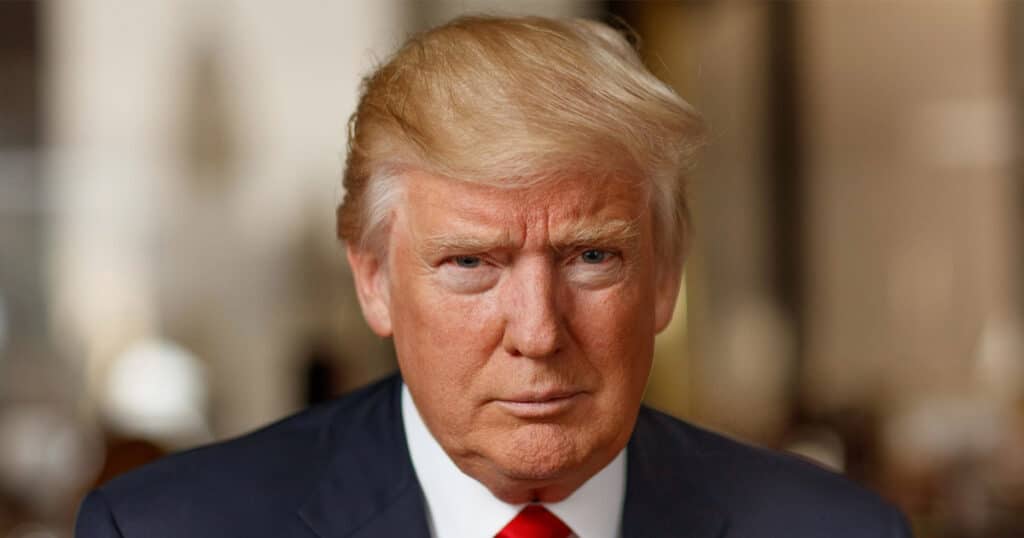
About 66 Million Americans Say ‘Divorce’ Between Red and Blue States Would Be Good
While divorce was considered a taboo topic not too many years ago, an estimated 66 million Americans, or approximately 20 percent of all United States citizens, now think a “national divorce” between “red” and “blue” states would be a good idea for the country, according to a poll released on earlier this week by Ipsos U.S. Public Affairs.
Yet, says one psychology professor from the University of Pennsylvania, there’s still hope for understanding and coexistence between those who identify as red or blue — if the approach is correct.
The poll shows more Republicans favor a national divorce than independents or Democrats, with 25 percent of Republicans favoring such a split, versus 20 percent of independents and 16 percent of Democrats. Then again, Independents polled highest, at 19 percent, when asked if they would support their state seceding from the Union.
“Americans’ deep political fault lines are clear and engrained in our psyche and politics,” said Cliff Young, president of Ipsos U.S. Public Affairs. “Talk of national divorce or secession leaves us with a divided nation with little hope of reconciliation.”
Men who make less than $50,000 and live in the South and the West were more likely to support the split, according to the survey.
The idea of a formalized split between conservatives and liberals was ignited by Rep. Marjorie Taylor Greene (R-GA), who suggested there should be a “divorce” between red and blue states, which would shrink the federal government. Greene clarified that she was not calling for a “civil war,” but she was concerned the country was heading in that direction.
“People are absolutely fed up and disgusted with left-wing insanity and disaster America Last policies. National divorce is not civil war, but Biden and the neocons are leading us into WW3 while forcing corporate ESG (Environmental, Social and Governance) gender confusion on our kids,” Greene said in a tweet last month.
Another question in the poll asked those surveyed whether they were optimistic about the state of democracy in the U.S. Only 37 percent said yes to that, while an overwhelming 60 percent of respondents said the country should work together to bridge the political divide and fix the hyper-polarization. That number was significantly higher than the 10 percent who indicated people should leave things as they are and the 30 percent who claimed they did not know how to fix the problems.
Jer Clifton, a professor at the University of Pennsylvania, where he teaches research methods in the Masters of Applied Positive Psychology program, argues in a recent piece he wrote for Scientific American magazine that shared understanding and cooperation between conservatives and liberals is indeed still possible, but it must first be acknowledged the division between conservatives and liberals goes far beyond the political tenets or social issues over which the two opposing sides often play tug-o-war. The differences, he wrote reveal a “fundamental fissure in the ways that people view the world.”
“In politics,” Clifton wrote, “researchers usually define conservativism as a general tendency to resist change and tolerate social inequality. Liberalism is a tendency to embrace change and reject inequality…It’s the fault line on which political cooperation most often breaks down.
Clifton said psychologists have long suspected that a handful of fundamental differences in worldviews might underlie the conservative-liberal rift. “Forty years of research has shown that, on average, conservatives see the world as a more dangerous place than liberals. This one core belief seemed to help explain many policy disagreements, such as conservative support of gun ownership, border enforcement and increased spending on police and the military — all of which, one can argue, aim to protect people from a threatening world.”
But new research by Clifton and psychologist and fellow researcher Nick Kerry seems to indicate “the main difference between the left and right is the belief that the world is inherently hierarchical.
“Conservatives, our work shows, tend to have higher belief than liberals in a hierarchical world, which is essentially the view that the universe is a place where the lines between categories or concepts matter. A clearer understanding of that difference could help society better bridge political divides,” wrote Clifton. “People high in hierarchical world belief see the world as full of differences that matter because they usually reflect something inherent, real and significant. Such individuals often separate things of greater value from things of less value. You might imagine that, to them, the world looks full of big, bold black lines. The opposite view — held by people low in this belief — tends to perceive differences as superficial and even silly. For individuals with this perspective, the world is mostly dotted lines or shades of gray.
Clifton said a main reason the new research findings are so exciting is that they hint “at ways to work through specific political deadlocks. For example, consider debates around LGBTQ+ topics. Conservatives may feel the line separating men and women is natural and innate — a big, bold line — whereas liberals may see that distinction as more superficial and culturally based — a gray area.
“Knowing about the left-right split on hierarchical world belief could have practical value,” he wrote. For instance, “imagine trying to convince a conservative to adopt a more liberal policy on transgender rights. If you assume their beliefs are informed by fear of danger, you might note that transgender people are much more likely to be assaulted than to assault anyone themselves –a tactic of assuaging fears. But another tactic is blurring lines — perhaps noting that a small but consistent number of babies are born with ambiguous genitalia and arbitrarily assigned a sex at birth, which suggests the line between male and female is not always extremely clear. If hierarchical world belief is more at play than dangerous world belief, assuaging fears may be less effective than describing why a specific line is a bit arbitrary.”
Clifton, in summation, quoted English author G. K. Chesterton, who wrote, “The most practical and important thing about a man is still his view of the universe.”
In order to reach a point of cooperation — even amid intense disagreement,” Clifton said, “people often need to grasp the other perspective. Our work shows that conservatives and liberals disagree more about the meaning of differences than the prevalence of danger.
“That insight may seem modest, but it’s a big step in the right direction,” he said.



